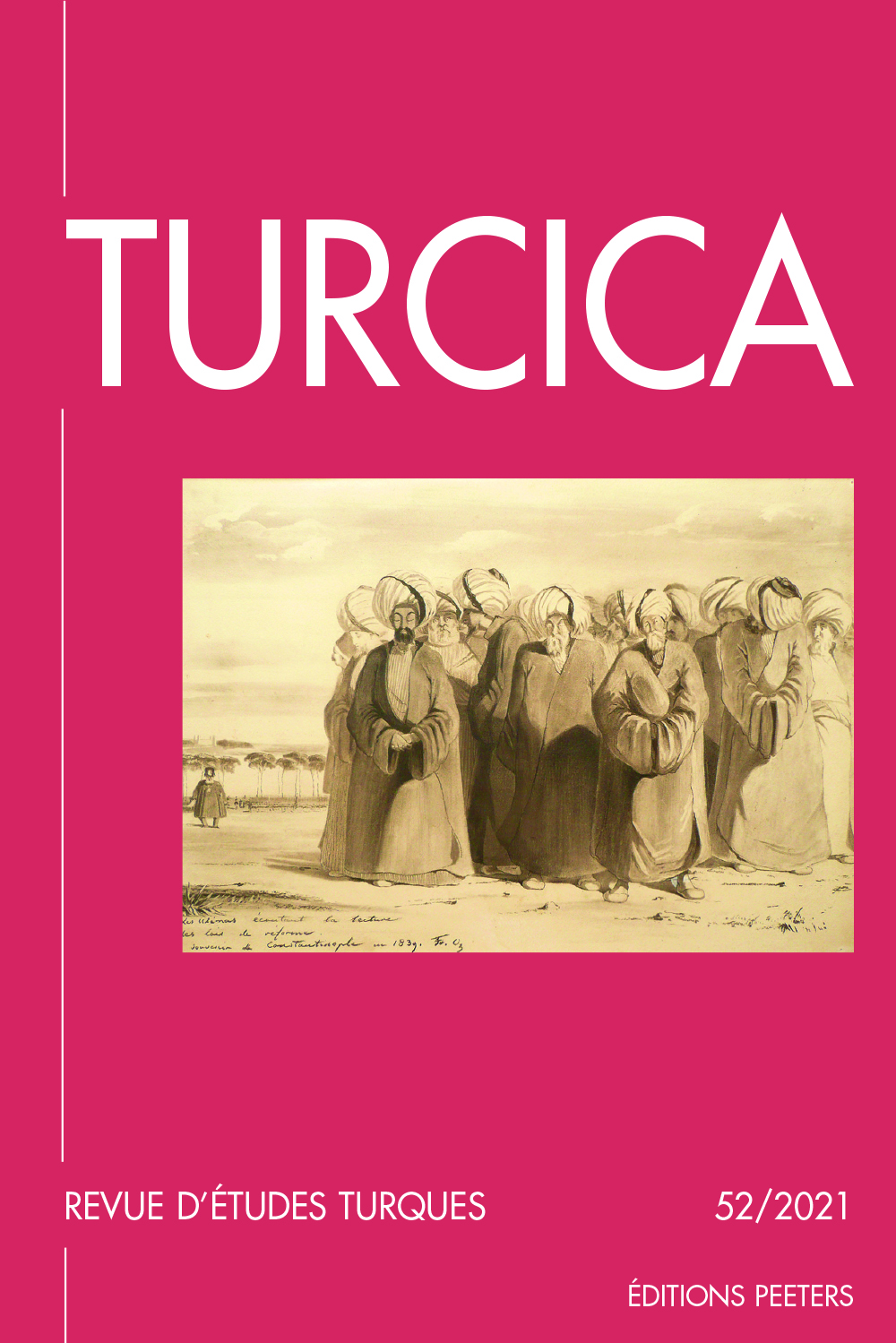 previous article in this issue previous article in this issue | next article in this issue  |

Preview first page |
Document Details : Title: Adaptation et perplexité des Austro-Hongrois face au droit civil ottoman en Bosnie-Herzégovine (1878-1918), en particulier dans la législation foncière Author(s): GELEZ, Philippe Journal: Turcica Volume: 52 Date: 2021 Pages: 309-337 DOI: 10.2143/TURC.52.0.3289812 Abstract : Quand les Austro-Hongrois se virent confier l’administration de la Bosnie-Herzégovine ottomane (1878-1918), ils fournirent un effort considérable pour comprendre et conserver la législation ottomane, avec l’intention de la faire converger progressivement avec le droit civil autrichien. Ce fut dans cet esprit que se mit en place une petite école de juristes autrichiens spécialisés dans le droit ottoman dont l’oeuvre de traduction, d’adaptation et d’interprétation fut considérable. Leur principal domaine de réflexion a été la législation agraire, la plus importante d’un point de vue social et politique dans cette province où la population, essentiellement rurale, était parcourue de tensions liées à la propriété du sol et à la modernisation des pratiques agricoles. Beaucoup d’institutions du monde agraire ottoman furent conservées ou évoluèrent à la marge, tant et si bien qu’on peut considérer qu’elles subsistèrent comme un aboutissement possible de la logique des Tanzimat. During the Austro-Hungarian administration of Ottoman Bosnia-Herzegovina (1878-1918), officials made a considerable effort to understand and preserve the Ottoman legislation, with the intention of gradually bringing it together with Austrian civil law. In that perspective, a small school of Austrian jurists specializing in Ottoman law was set up, whose work of translation, adaptation and interpretation was considerable. Their main field of reflection was agrarian legislation, the most important one from a social and political point of view in this province where the population, essentially rural, was experiencing tensions related to land ownership and modernization of agricultural practices. Many of the institutions of the Ottoman agrarian world were kept or evolved at the margins, so much so that they can be considered as a possible outcome of the Tanzimat logic. |
 |


